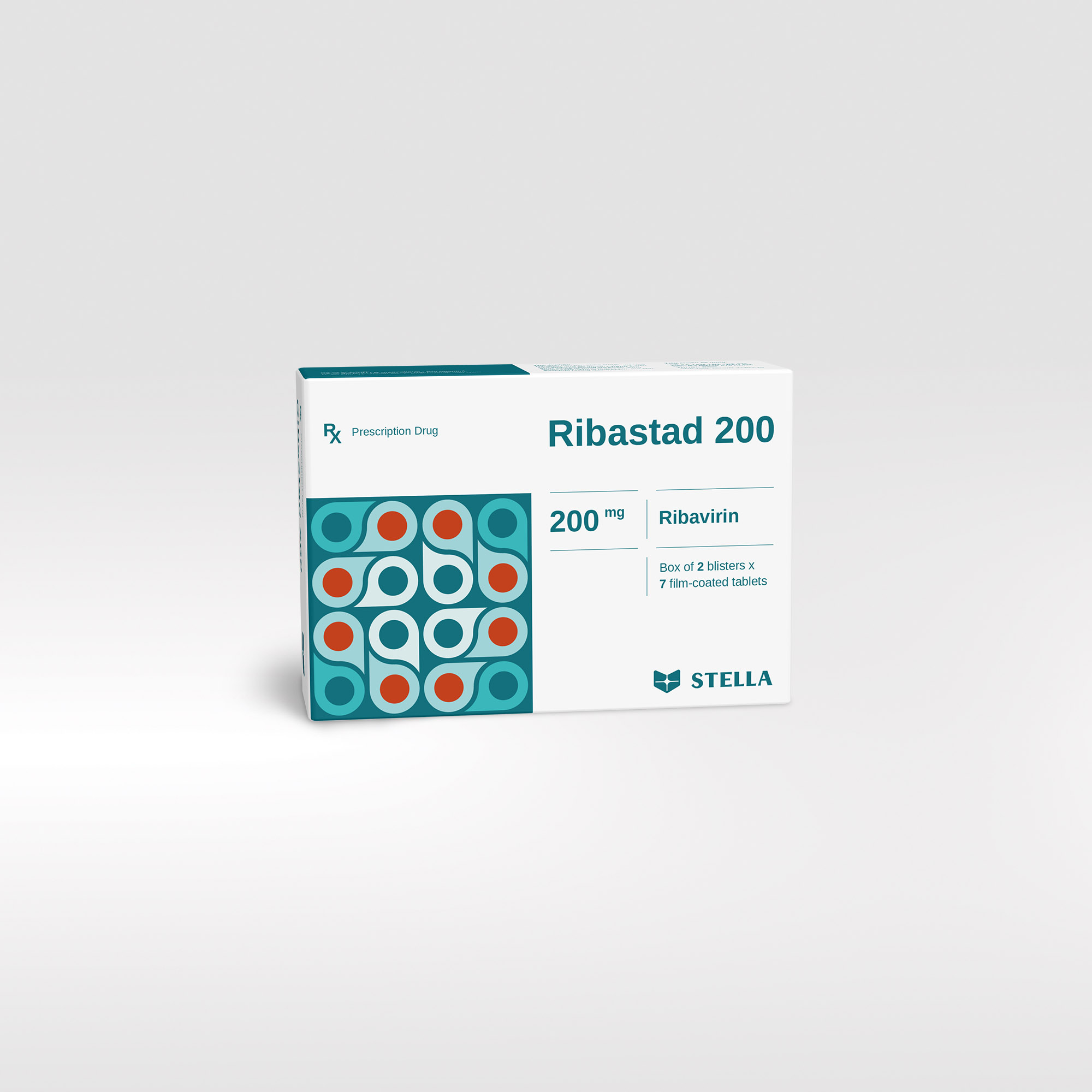Indications
- Chronic hepatitis C in patients with cirrhosis compensation not receiving interferon or reoccurrence of interferon alpha-2b therapy: Co-administered with interferon alpha-2b or peginterferon alpha-2b. This phase is effective for HCV-HIV co-infection.
- Several kinds of viral haemorrhagic fevers: Lassa fever, Haemorrhagic fevers with renal syndrome, pulmonary syndrome, Crimean-Congo haemorrhagic fevers.
Dosage:
Chronic hepatitis C:
Ribavirin is used with interferon for oral use:
- Adults: 800 mg/day, in two divided doses. Dose adjustment depends on body-weight (up to 1200 mg/day for those > 85 kg)
- Children > 3 years of age: 15 mg/kg body-weight/day, in two divided doses.
Ribavirin is always used with interferon (3 – 5 million IU, injected 3 times a week) or peginterferon (1.5 µg/kg, injected once a week).
In those with hepatitis C infection alone (mono-infection), patients with viral genotype 1, 4: should generally be treated for 48 weeks and those with genotype 2 or 3 for 24 weeks; data on genotypes 5 or 6 are insufficient to make recommendations. In co-infection with HIV, treatment should generally be given for 48 weeks regardless of genotype.
In cases of reoccurrence treated with interferon: Continue the treatment with ribavirin within 24 weeks. Discontinuation of therapy should be considered if the patient has failed to detect HCV RNA levels after 24 weeks of therapy.
Haemorrhagic fevers (Lassa fever, viral fever):
- Prophylaxis: Adults with risk of high exposure: Orally use 500 – 600 mg, with 6-hour-interval for 7 – 10 days.
- Children 6 – 9 years of age: Orally use 400 mg, with 6-hour-interval for 7 – 10 days. Children < 6 years of age, doses have not been determined.
Usage
Ribastad 200 is administered orally regardless of meals. However, ribavirin is absorbed better after taking fatty-meals.






